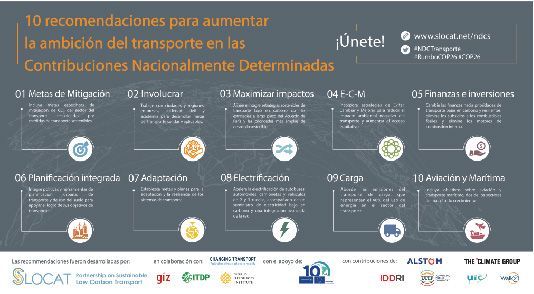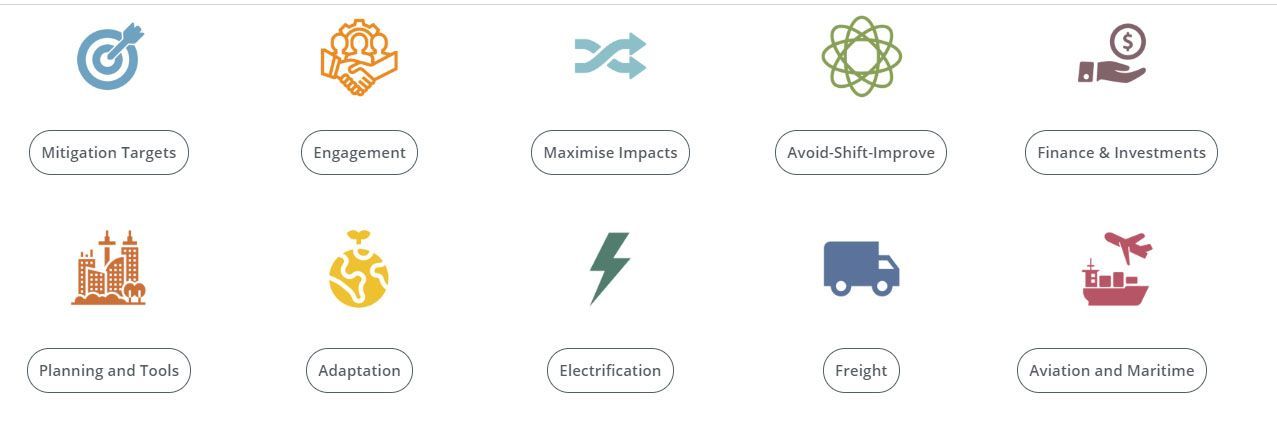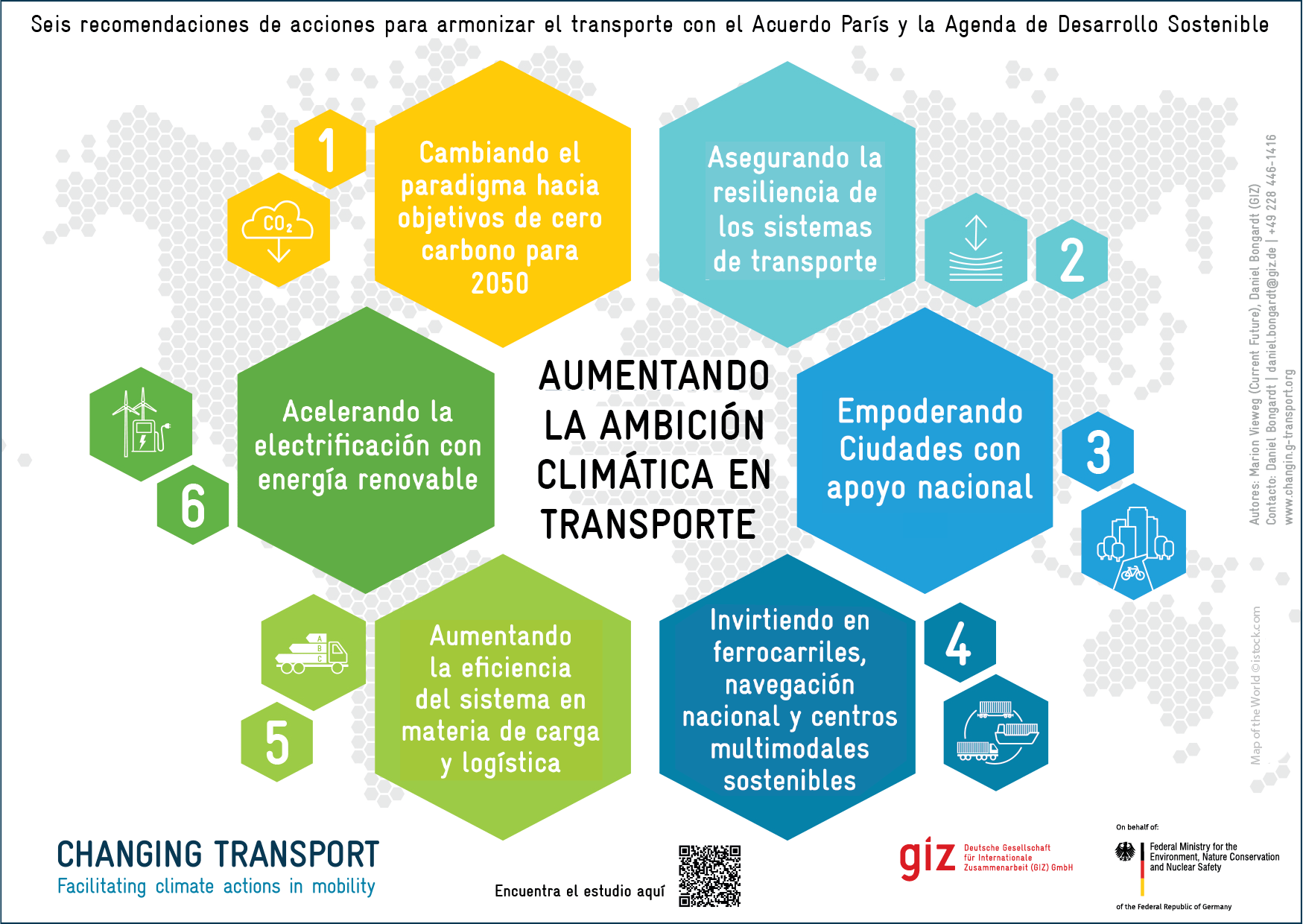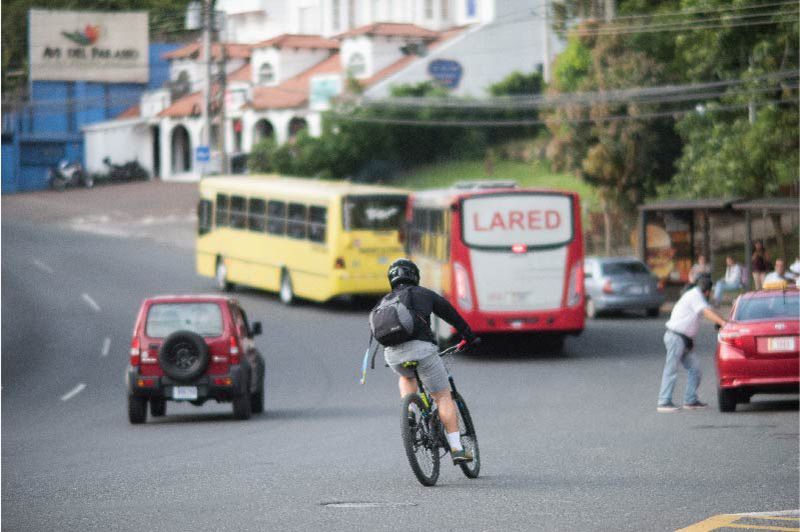The EUROCLIMA+ programme invites the creation of synergies to promote climate actions in the transport sector.
Transport has become the fastest growing sector in terms of global emissions, contributing about a quarter of energy-related greenhouse gases (GHGs). In the case of Latin America, emissions from this sector grew by 46% from 2000 to 2017, reaching a total of 578 million tonnes of CO2.
The global emergence of COVID-19 has become a point of no return that further highlights the importance of generating initiatives for sustainable development. Now more than ever it is important to invite countries to generate actions towards another crisis that requires further attention and that is not alien to the pandemic we are currently experiencing: climate change.
This is why the EUROCLIMA+ programme, through the Urban Mobility sector and in alliance with other organisations, has launched the #NDCTransport campaign, "Increasing ambition for transport in Nationally Determined Contributions". This initiative aims to disseminate study-based recommendations for governments to generate solid actions that align transport with the Paris Agreement and the 2030 Agenda.
Transport in first generation of NDCs

In 2015, countries submitted to the United Nations Framework Convention on Climate Change the first Nationally Determined Contributions (NDC), their actions to reduce their GHG emissions and adapt to the effects of climate change, and thus achieve the goal of limiting warming to 1.5 to 2 degrees Celsius above pre-industrial levels.
Of these 166 first-generation NDCs, 76% mentioned the transport sector as a source of mitigation; however, only 8% included transport-specific GHG mitigation targets.
In terms of Avoid, Change, Improve, 65% of mitigation measures in NDCs represented strategies for Improvement, while 28% and 7% represented Change and Avoid strategies, respectively. Only 16% of NDCs included adaptation of transport. Many NDCs focused more on passenger transport and less than a quarter on freight transport, which could triple by 2050.
Ambition for transport needs to increase dramatically in the second generation of NDCs, which many countries will update in 2020.
While 76% of the first 166 NDCs mentioned transport, only 8% included sector-specific GHG mitigation targets, according to a report by SLOCAT.
Key Recommendations for transport in NDCs

EUROCLIMA+, the European Union's flagship programme on sustainability and climate change with Latin America, works closely with Latin American countries to meet the Nationally Determined Contributions (NDC) in the region. The Urban Mobility sector aims to develop more ambitious targets in the transport sector through its 19 projects and its Community of Practice.
Together with SLOCAT, the Alliance for Sustainable Transport, the #NDCTransport campaign was developed to connect with climate change decision makers in Latin America. As part of this initiative, 10 recommendations were disseminated to increase ambition for transport in the NDCs.
The materials were developed by SLOCAT in coordination with the German Cooperation for Sustainable Development (GIZ), the World Resources Institute (WRI), and the Institute for Transport and Development Policy (ITDP), with support from EUROCLIMA+ for its Spanish version.
The recommendations contemplate approaches to Avoid, Change and Improve strategies, modes of financing, involvement of different actors, integration into urban planning, as well as a focus on electromobility, cargo transport, maritime and aviation aspects, among others.

These combined efforts aim to support the inclusion of specific transport mitigation and adaptation objectives and plans in the updating of the NDCs. At the same time, the information from the campaign will be used to prepare reflections on the role of transport for COP26.
You can download the infographics at this link. On the SLOCAT site you can find the ten recommendations, as well as additional materials.
Essential actions for the Paris Agreement and 2030 Agenda

More than just reducing emissions, actions in transport must also be directed at improving the quality of life of citizens: providing cleaner air and less congestion. As part of the campaign, EUROCLIMA+ shares six recommendations for actions for policy makers working on climate change to raise ambition in the transport sector.
These general actions were devised by GIZ, one of the seven implementing agencies of the EUROCLIMA+ programme, which in turn is in charge of the Urban Mobility sector in conjunction with the French Development Agency (AFD).
The material was developed based on transport-related road maps, discussion papers and recent research findings. The actions have been formulated to enable adaptation to divergent national contexts, are aligned with the objectives of the Paris Agreement and in turn contribute to the UN’s Sustainable Development Goals in the 2030 Agenda.
These recommendations were compiled and expanded in a publication by Changing Transport. This document contains objectives, the recommended policies for meeting them, the actors involved, and the technology required for each of the six actions.
To consult the complete publication (in English) and to have access to the materials and infographics, click on this link.
Next steps
Through the EUROCLIMA+/MobiliseYourCity Community of Practice, the ministries responsible for transport and NDC development are invited to join and exchange experiences on the Platform for Sustainable Urban Mobility in Latin America, thus continuing to nourish the combined synergies.
In addition to these efforts, a virtual workshop on Long Term Strategies for the Paris Agreement focusing on transport strategies is planned for the end of September, organised by EUROCLIMA+ and SLOCAT.
Through the dissemination of tools and knowledge and the creation of alliances and collaborations, the EUROCLIMA+ programme invites Latin American countries to develop proposals for climate actions that involve transport in an integrated manner. With initiatives in favour of sustainable transport as a vector of human development, it will be possible to fulfil the objectives for sustainability in the region.
For more information:
This email address is being protected from spambots. You need JavaScript enabled to view it.
www.euroclimaplus.org
